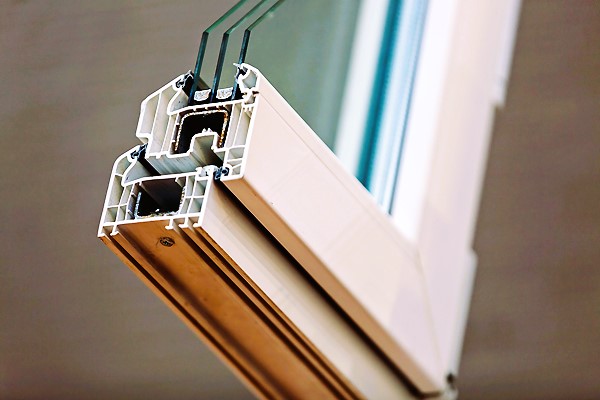Double glazing, also known as insulated glazing, has become a popular choice for homeowners seeking to improve insulation and energy efficiency in their homes. By incorporating two layers of glass separated by a sealed space, double glazing offers numerous benefits over single glazing, including enhanced thermal insulation, reduced heat loss, and improved energy efficiency. In this article, we will explore how double glazing works and its impact on insulation and energy efficiency.
- How Double Glazing Works
Double glazing consists of two glass panes separated by a spacer, which creates a sealed space between them. This space is typically filled with air or a gas, such as argon or krypton, which has better insulating properties than air. The spacer and sealant provide structural integrity and prevent moisture from entering the space between the glass panes. Together, these components work to improve the insulation properties of windows and reduce heat transfer.
- Thermal Insulation
One of the primary advantages of double glazing is its superior thermal insulation compared to single glazing. The air or gas trapped between the glass panes acts as an insulating layer, reducing the transfer of heat between the inside and outside of the building. This insulation helps to maintain a more stable indoor temperature, minimizing heat loss during colder months and reducing heat gain during warmer months. By providing an additional barrier to heat transfer, double glazing improves comfort and reduces the need for excessive heating or cooling.

- Reduced Heat Loss
Heat loss through windows is a significant contributor to energy inefficiency in buildings. Single glazing allows more heat to escape compared to double glazing. The insulating properties of double glazing significantly reduce heat loss through windows, leading to energy savings and lower heating costs. The trapped air or gas between the glass panes acts as a thermal barrier, preventing the transfer of heat from the warm interior to the colder exterior. This insulation effect helps to create a more energy-efficient and comfortable indoor environment. Enhancing Comfort while Reducing Energy Consumption with Smart Home Heating.
- Condensation Reduction
Condensation can be a common problem on windows, especially in colder climates. Double glazing helps to minimize condensation by reducing the temperature difference between the indoor and outdoor surfaces of the glass. The insulating layer created by the sealed space between the glass panes helps to maintain a higher temperature on the inner pane, reducing the likelihood of condensation forming on the glass surface. By minimizing condensation, double glazing helps to maintain clear visibility and prevents potential damage to window frames and surrounding areas.
- Enhanced Sound Insulation
In addition to thermal insulation, double glazing also provides improved sound insulation compared to single glazing. The multiple layers of glass, along with the trapped air or gas, act as a barrier to sound transmission. This additional sound insulation helps to reduce external noise, creating a quieter and more peaceful indoor environment. Whether you live in a busy urban area or near a noisy road, double glazing can significantly improve acoustic comfort inside your home.
- Energy Efficiency and Cost Savings
The enhanced insulation and reduced heat loss provided by double glazing result in improved energy efficiency. By minimizing the need for excessive heating or cooling, homeowners can achieve significant energy savings and lower utility bills. The investment in double glazing can lead to long-term cost savings, as the reduced energy consumption helps offset the initial installation cost. Additionally, improved energy efficiency contributes to a more sustainable and environmentally friendly home.
To learn more about energy efficiency standards and regulations in Canada, you can refer to the official website of the Government of Canada on energy efficiency: Canada.ca Energy Efficiency.
- Considerations for Optimal Performance

To maximize the benefits of double glazing, several considerations should be taken into account duringinstallation and maintenance:
- Window Frame: The quality and thermal performance of the window frame are essential factors in the overall efficiency of double glazing. Insulated frames, such as those made of vinyl or wood with thermal breaks, can further enhance the insulation properties of double glazing.
- Low-E Coatings: Low-emissivity (Low-E) coatings can be applied to the glass of double-glazed windows to further improve their thermal performance. These coatings reflect heat back into the room, reducing heat loss during the winter and minimizing heat gain in the summer.
- Proper Installation: Double glazing should be installed by professionals to ensure a proper and airtight seal. Any gaps or inadequate sealing can compromise the insulation benefits and reduce energy efficiency.
- Maintenance: Regular maintenance, such as cleaning and inspecting the windows, is important to ensure optimal performance. Inspect the seals and frames for any signs of damage or wear, and replace any damaged components promptly.
- Ventilation: While double glazing improves insulation, it’s important to ensure proper ventilation in your home. Adequate ventilation helps to maintain indoor air quality and prevent issues such as condensation and mold growth.
Double glazing is an effective and practical solution for improving insulation and energy efficiency in homes. By reducing heat loss, minimizing condensation, enhancing sound insulation, and providing cost savings, double glazing offers a range of benefits for homeowners. Consider investing in double glazing to create a more comfortable, energy-efficient, and sustainable living environment.
